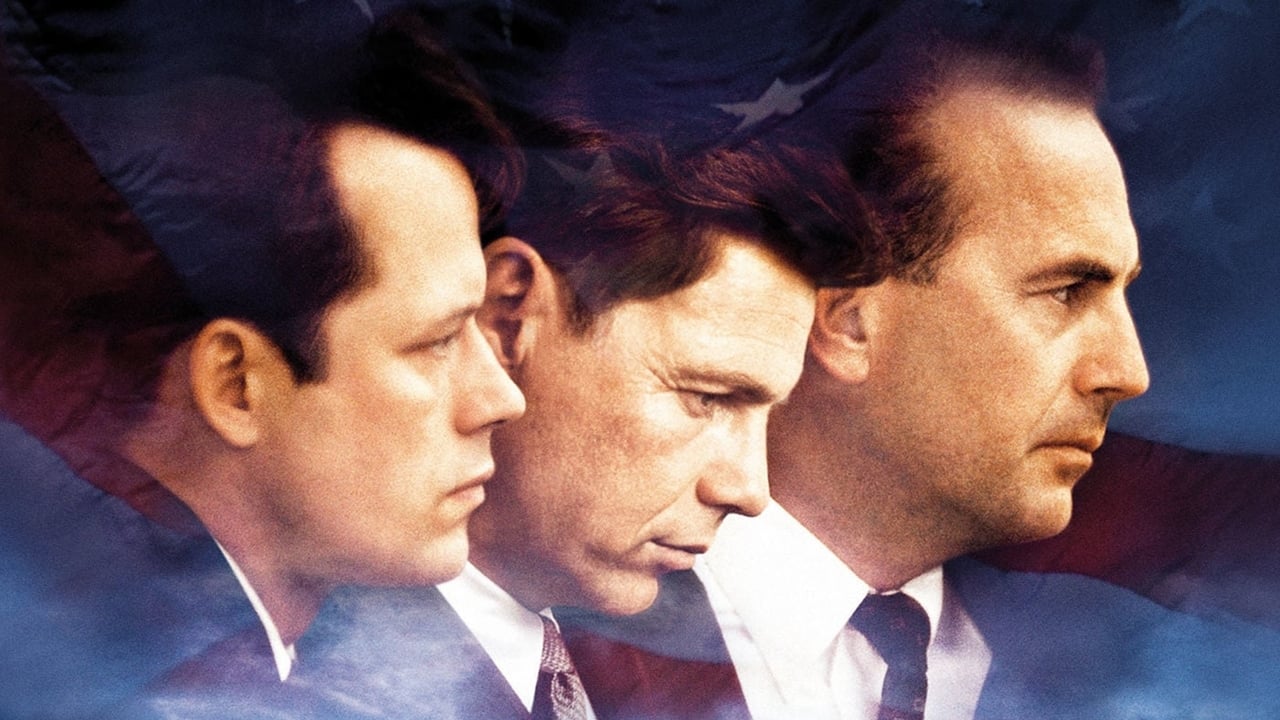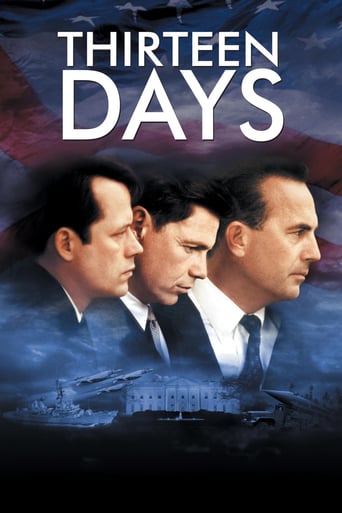

"Nothing can ruin the carefree mood of a football game so much as an imminent nuclear holocaust." Henry folded his hands behind his head and stretched his body as to make full use of the couch."Blimey, we actually saw a movie that was on the good side of the average divide..." Kristl said and she handed Henry a beer. She had walked into the kitchen that was at the end on the adjoining corridor of their garage-turned-movie-theater."Beer...? Blimey..? A positive mood? What has gotten into you?" Henry quickly secured the offered beer before something sudden would happen, like a nuclear war or a mood swing. You never knew when Kristls mood would take another turn. Women, so Henry thought, were highly unpredictable.. especially to men.." I really liked the movie. It was a good political thriller. Strange actually, considering that I knew what was going to happen: it still had me sitting on the edge. I liked it that they never showed what the other people were thinking or doing: the Soviets, the Cubans, even their own people: the US military. And although I had to get adjust for a moment, it was a good thing that Kevin Costner did not play the president but his adviser. It sort of made it more human. ""Yeah, funny... Our military was as much to be trusted as not. I can imagine that some people will not like this image of some military dudes steering towards a nuclear war. Perhaps somewhat unfair too? The Russians were the bad guys, no?" Henry mused. He savored his beer."Soviets. Not Russians. Let's call them Soviets. And the answer: maybe.. maybe.. at least they were unknown baddies.. That makes the movie unnerving. You have no idea what they are thinking. Just like the president and his staff must have been experiencing. What are they up to? How far will they go?""And what if they don't stop?""Yeah. How did you like the intro.. how it flows from the introduction into the movie. Other than that the movie was not a cinematographic high movie. Not spectacular imagery. But well played and well written." Kristl added."I actually was amazed myself that I liked it.. I mean,..." Henry made a vague gesture., spilling some beer."No damsels in tight suits shooting up legions of evil guys?" Kristl smiled."Yeah., no action.. yet the movie scares the hell out of you. They were so hovering on the brink of a nuclear war. If the Russians had not given in.. If they had not turned those ships around.." Henry made a sudden gesture with his hands making him spill beer all around, "BOOM!""That is true.. but than we never know if president Kennedy would have backed down himself. Or that they would have ignored the ships being there. This is of course another thing. That this issue got to be a big issue was because the US made it into a one. They were prepared to go to war over nuclear missiles stationed on Cuba not because it meant that the US could now be nuked -the Soviets could do that already- but because the US could be nuked far quicker than before. Not hours.. but minutes. It sort of evened the score in their opinion because that same threat hung over the heads over everyone else. It sort of gives you pause to think why this thing was played up. Why was Kennedy prepared to let it get this far?""Well. In the end the Russians backed down.. so the US won." Henry said."Won?" Kristls face became thoughtful, "Won. Maybe. But at that point in time I wonder.. was it really necessary to drag the world towards a nuclear war over some missiles placed on Cuba? I mean really.. the Soviets could already bomb the US back into the stone age so placing missiles on Cuba was not actually changing the balance in the world by much. Maybe it was more to save the presidents prestige than anything else. Which makes you wonder... and scared. ""Let's fret not over things that are in the past. We are talking about a movie, not about some political historical discussion. I liked the movie even if there was not one action scene in it.""Uhmm. Touchy subject no?""Let us just say that it ended in a positive mood. Red lost...""And blue won?""Right.""Only not sure who was red and who was blue." Kristl said to herself.Review with pictures at my site:www.meritcoba.com
... View MoreFast-paced and well-acted, Thirteen Days is an intriguing, suspenseful political drama. With a few glaring exceptions (such as Kenny O'Donnell's role in the Cuban missile crisis), this movie is historically accurate in its portrayal of the panic that struck the nation during the missile crisis, which turned out to be, arguably, John F. Kennedy's greatest political victory. What fascinated me about Thirteen Days was the top-notch portrayal of John F. Kennedy and Robert Kennedy. I was also impressed with the screenplay, especially the fast-paced, realistic dialogue (though much of the real-life language was cleaned up). Another success of the film were the beats of each scene that lent the film overall authenticity (O'Donnell's playful exchange with Jackie about the candy, for example). Although the lack of physical action may bore some viewers, Thirteen Days is a well-crafted, suspenseful dramatization of the Cuban Missile Crisis, and certainly worth a watch.http://bitesizemoviereview.blogspot.com/
... View MoreI knew the leading actor of the film, but I had no idea what it was going to be about, only that the critics give it four stars out of five, so it sounded good enough to try, from director Roger Donaldson (Dante's Peak, The World's Fastest Indian). Based on the true events, in October 1962, USAF U-2 surveillance has discovered that the Soviet Union are taking nuclear ballistic missiles in Cuba, with the potential to kill up to 80 million Americans and destroy large bomber bases if put in operation. As President, John F. Kennedy (Racing Stripes' Bruce Greenwood) and his advisers, including Kenny O'Donnell (Kevin Costner) must come up with a strategy to combat the situation against the Soviets. Kennedy tries to stay calm and strong against the threat, but his advisers in the Pentagon are saying that he should consider a military strike on Cuba, which would cause an invasion. It is Secretary of Defence Robert McNamara (Dylan Baker) that devises the plan to create a blockade by the navy so Cuba and the missiles cannot reach the country. The Russians however ignore the blockade and to get involved themselves, and things start getting worse, but communications with the threatening countries after thirteen days do in the end come to a settlement. Also starring Steven Culp as Robert F. Kennedy, Michael Fairman as Adlai Stevenson, Henry Strozier as Dean Rusk, Frank Wood as McGeorge Bundy, Kevin Conway as General Curtis LeMay, Tim Kelleher as Ted Sorensen, Len Cariou as Dean Acheson and Home Alone 3's Olek Krupa as Andrei Gromyko. Costner, who you may remember was also in JFK, does do alright despite his rather silly Alabama style accent, Greenwood looks a little old to play a convincing Kennedy, but he does do well, and there are some small gripping moments that do reflect the realistic events during the Cuban Missile Crisis, it is I suppose a worthwhile historical drama. Good!
... View MoreOctober 1962.The American Embassy,Grosvenor Square,London.Half a dozen Met cops,rushed for some unfathomable reason from their East London nick are drinking coffee in the underground car park which is rapidly filling with gun - toting U.S.Marines.Our sergeant.a grizzled vet who had seen service with the Welsh Guards in what he called "The Big One" suggested to a nervous - looking grunt that his President might be over - reacting to a typical piece of Kruschevian provocation. "What would Macmillan do if the reds put their missiles in Ireland?"was the response.Taff thought for a moment then said,"Try and set the buggers off,probably".The marine snorted."The Big Red Dog is digging in our backyard".He threw his coffee cup into a bin and went to join his mates who were getting in position to repel a couple of dozen "Hands off Cuba" demonstrators in case they were stupid enough to charge the Embassy. I was reminded of this brief encounter when I watched "13 Days" and the placement of Soviet Missiles in Cuba was referred to in the exact same terms in the film. Fortunately for all of us Mr Kruschev was exercising his penchant for brinksmanship and President Kennedy earned his respect by calling his bluff.There was a deal to be done and both men took advantage of the opportunity. In "13 Days" we see how Kennedy had the moral strength to beat down the military who were set on "First Strike" as the preferred option. In scenes thick with testosterone he defies this baying pack and listens to the voice of reason. Having lived through this event,the details are less of a revelation to me,but that does not detract from the efficacy of the film. The weak point is Mr K.Costner who not only has a very poor accent but also wears his underpants beneath his pyjamas. Just over a year later I was back at the Embassy in the turmoil caused by Kennedy's assassination and a few years further on fought the mob in Grosvenor Square during the "October Revolution".I got a nasty kick on the shin.A small price to pay for supporting our close friends and allies,in my book.
... View More